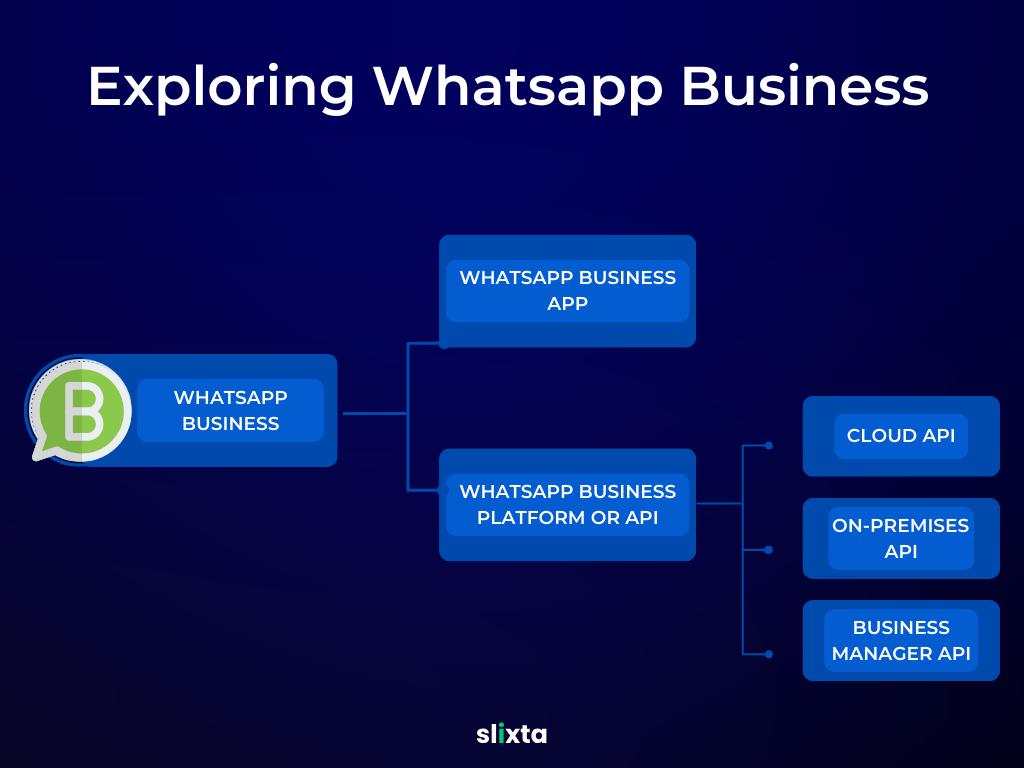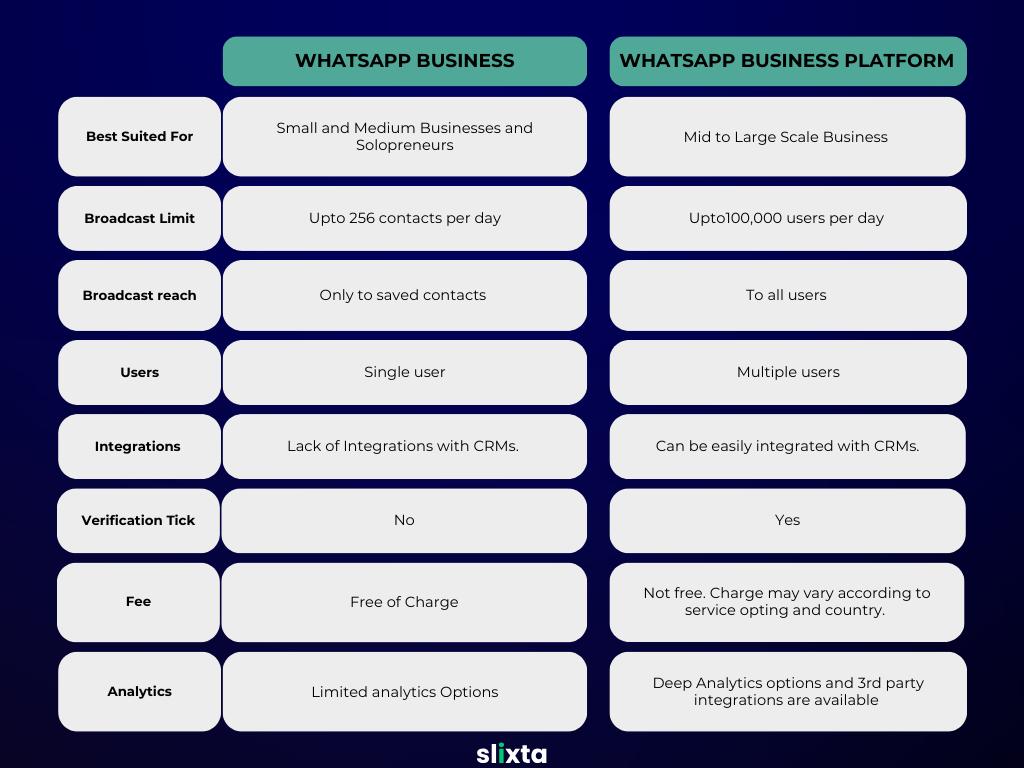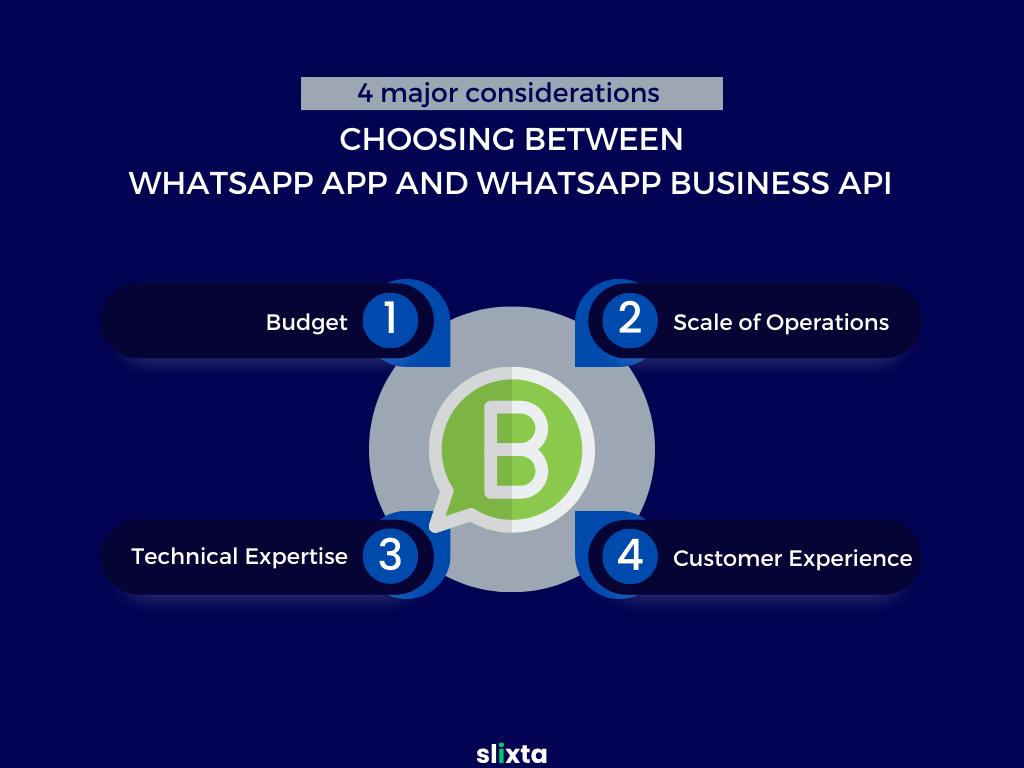
WhatsApp Business App and WhatsApp Business Platform serve distinct purposes for businesses. The WhatsApp Business App is designed for small and medium-sized enterprises to interact with customers on a mobile device. On the other hand, WhatsApp Business Platform, often used by larger enterprises, provides more extensive automation and integration capabilities. Choosing between the two depends on a company's specific needs and scale of operations.
As technology continues to shape the way businesses interact with their clients, WhatsApp has emerged as a powerful platform, offering tailored solutions through its Business App and Business Platform. With the surge in customer demand for swift, personalized, and engaging interactions, businesses are embracing WhatsApp as a pivotal tool. According to Spectrm.io's 'The State of WhatsApp Business Messaging' report,' a staggering 69% of respondents expressed a higher inclination towards purchasing from brands offering WhatsApp communication. Moreover, 64% of consumers are willing to spend more when they can engage with businesses on this popular messaging platform.
In this blog, we are going to cover about WhatsApp Business, comparing its two primary facets: the WhatsApp Business App and the WhatsApp Business Platform.
Exploring Whatsapp Business
WhatsApp Business offers two distinct products: the Business App and the Business Platform.

(https://www.canva.com/design/DAFwXteRsCU/0UgWxHrVn55-6q0VBuSMFA/edit)
The Whatsapp Business App
- The Business App is free to download and supports up to four designated employees for customer communication.
- The WhatsApp Business Platform, also known as the WhatsApp API, caters to medium and large-sized businesses, providing a more versatile communication solution.
The WhatsApp Business Platform or Whatsapp API
- The WhatsApp Business Platform offers three APIs
- Cloud API: Enables businesses to send and receive messages at scale through Meta's servers. It allows integration of live agents or chatbots for both manual and automated customer communication.
- On-Premises API: Similar to Cloud API, it facilitates communication with customers but is hosted and maintained on the business's own servers.
- Business Manager API: Allows businesses to manage Meta accounts, campaign settings, assets, and receive status updates.
- Businesses can integrate the WhatsApp Business Platform with existing infrastructure, including CRM tools, customer support solutions, and marketing platforms.
- Integration examples include linking WhatsApp Business with customer support platforms like Zendesk for efficient tracking, organization, and response to customer requests via WhatsApp.
Whatsapp Business App Vs. Whatsapp Business Platform

Choosing Between Whatsapp App and Whatsapp Business API
When it comes to leveraging WhatsApp for business purposes, choosing between the standard WhatsApp app and the WhatsApp Business API requires careful consideration of your organization's needs and goals.
Considerations

- Budget: Evaluate your budget constraints. While the WhatsApp app is free, the API involves costs, especially for higher usage volumes.
- Scale of Operations: Consider the volume of customer inquiries you expect. If you anticipate a high number of messages that require automation, the API might be the better choice.
- Technical Expertise: Assess your technical capabilities. The API requires integration and technical expertise, whereas the WhatsApp app is more user-friendly.
- Customer Experience: Think about the experience you want to provide. If personal interactions are essential, the WhatsApp app might suffice. For automated, streamlined, and professional interactions, the API is preferable.
Advantages of the WhatsApp App
- Ease of Use: The standard WhatsApp app is user-friendly and widely used globally. It’s ideal for small businesses and startups with limited technical resources.
- Personal Touch: It allows direct communication with customers, enabling a more personal touch in interactions. This can be beneficial for businesses focusing on individual customer relationships.
- Limited Automation: While you can save frequently used messages as templates, automation options are limited. It’s more suitable for businesses with manageable customer inquiries.
- Cost: The app is free to use, making it a cost-effective option for small businesses.
Advantages of the WhatsApp API
- Scalability: The API offers extensive automation and scalability options. It’s suitable for medium to large enterprises handling high volumes of customer queries. Automated responses, chatbots, and integrations with CRM systems are possible.
- Professionalism: With verified business profiles, the API adds a layer of professionalism and trust to your interactions. It's especially important for businesses aiming for a professional image.
- Richer Features: The API provides access to features like message templates, message tags for important updates, and integration capabilities with other business tools, enhancing the overall customer experience.
- Cost: While the API itself is not free, its advanced features can lead to cost savings in the long run by improving efficiency and customer satisfaction.
Conclusion
Your choice between the WhatsApp App and WhatsApp Business API hinges on your business size, budget, technical proficiency, and the desired level of automation. Carefully weigh these factors to select the option that aligns best with your business objectives and customer service requirements.
For more valuable insights and information, check out these recommended blogs:
